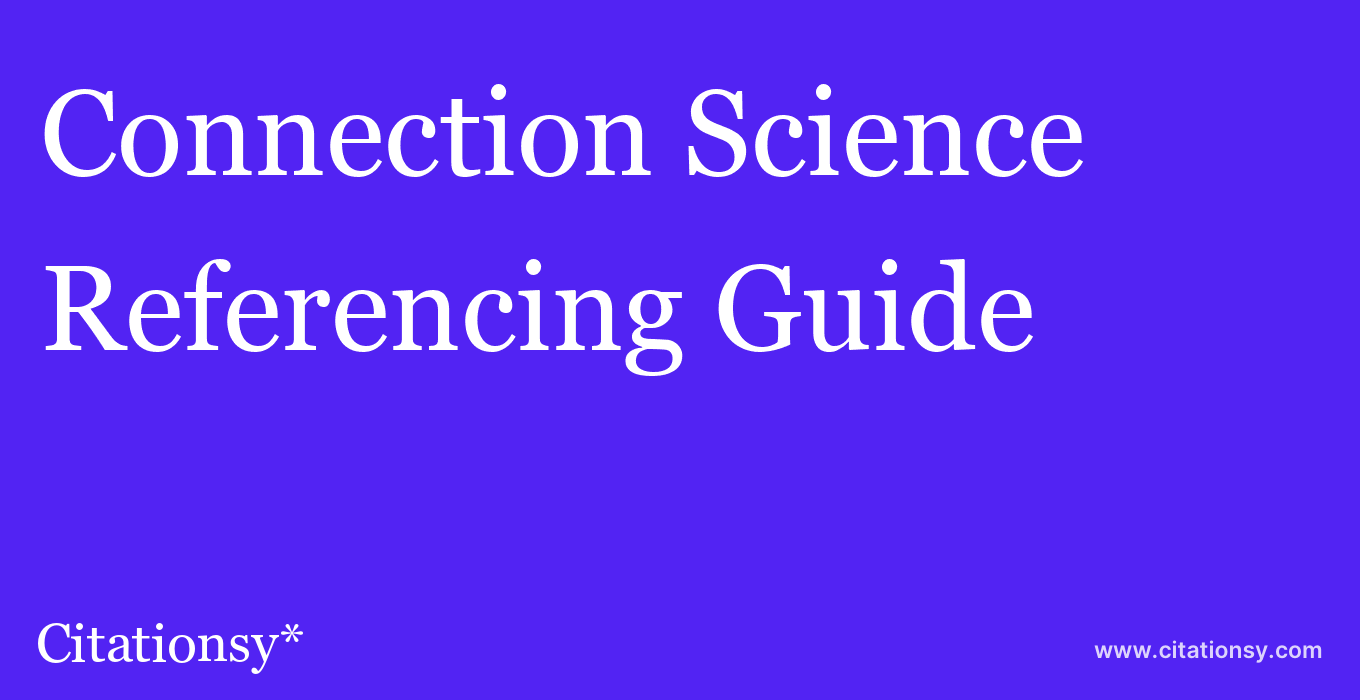Connection Science Referencing Guide
(updated Jul 2024)
Last updated:
How to do citations in Connection Science style?
This is the Citationsy guide to Connection Science citations, reference lists, in-text citations, and bibliographies.
Automate citations and referencing with our tool, Citationsy. It’s free to try and over 400 000 students and researchers already use it.
This is the Citationsy guide to Connection Science citations, reference lists, in-text citations, and bibliographies.
The complete, comprehensive guide shows you how easy citing any source can be. Referencing books, youtube videos, websites, articles, journals, podcasts, images, videos, or music in Connection Science.
Click here to give it a try.

How do you cite a book in the Connection Science referencing style? (2024 Guide)
One of the most cited mediums is of course books. Here’s how to cite a book in Connection ScienceHere’s an example book citation in Connection Science using placeholders:
Last Name, F. N. (2000). Title (E. F. N. Editor Last Name, Ed.; Edition). Publisher.
Connection Science citation:
Angelou, M. (1969). I Know Why the Caged Bird Sings (1st ed.). Random House.
Automate citations and referencing in Connection Science with our tool, Citationsy.
It’s free to try and over 400 000 students and researchers already use it.
Click here sign up
How to reference a journal article in the Connection Science citation style?
How do you cite scientific papers in Connection Science format?
An Connection Science citation for a journal article includes the author name(s), publication year, article title, journal name, volume and issue number, page range of the article, and a DOI (if available). Here’s howHere’s a Connection Science journal citation example using placeholders:
Author1 LastnameA. F., & Author3 LastnameA. F. (2000). Title. Container, Volume(Issue), pages Used. https://doi.org/DOI
 Sign in with Apple
Sign in with Apple account
account